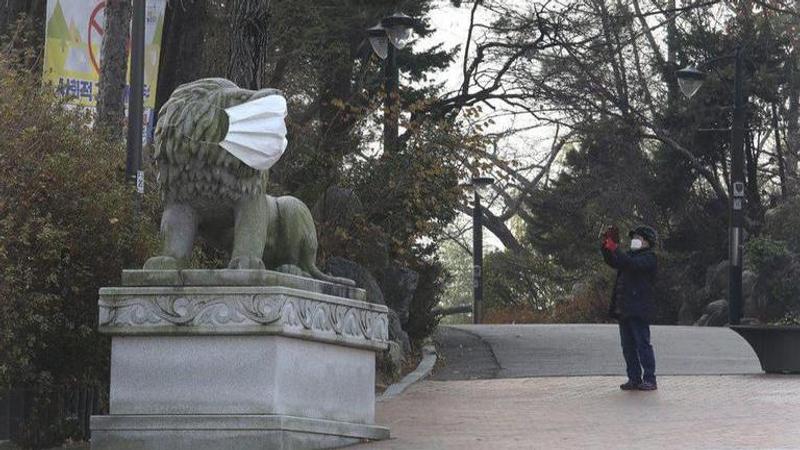Published 12:45 IST, December 12th 2020
Asia Today: S. Korea reports 950 cases, biggest daily jump
South Korea has reported another 950 coronavirus cases, its largest daily increase since the emergence of the pandemic, as fears grow about overwhelmed hospitals in the greater capital area.

South Korea has reported another 950 coronavirus cases, its largest daily increase since the emergence of the pandemic, as fears grow about overwhelmed hospitals in the greater capital area.
The figures released by the Korea Disease Control and Prevention Agency on Saturday brought the country’s caseload to 41,736, after health officials added more than 8,900 cases in the last 15 days alone. Six COVID-19 patients died in the past 24 hours to bring the death toll to 578.
Nearly 680 of the new cases came from the densely populated Seoul metropolitan area, where health workers have struggled to track transmissions popping up from just about everywhere, including hospitals, long-term care facilities, restaurants, saunas, schools and army units.
Infections were also reported in other major urban centers, including Busan, Gwangju, Daejeon, Ulsan and Daegu, a southeastern city that was the epicenter of the spring outbreak.
The government had eased its social distancing restrictions to the lowest tier in October despite experts warning about a viral surge during colder weather, when people spend longer hours indoors.
Officials restored some restrictions in recent weeks, such as shutting nightclubs and allowing restaurants to provide only deliveries and takeouts after 9 p.m., and could be forced to clamp down on economic activity further.
Health officials are also trying to ramp up testing and prevent the virus from being spread by those with mild or no symptoms.
From Monday, rapid antigen tests at emergency rooms, intensive care units and remote hospitals will be covered by the national health insurance, which would cost recipients about 8,000 won ($7) each.
Antigen tests and another form of rapid testing based on saliva samples will also be available at designated sites in the capital area free of charge and regardless whether people are symptomatic.
The country will also deploy more than 800 police officers, troops and civil servants to support contact tracing.
In other developments in the region:
— The Australian state of Queensland on Saturday welcomed travelers from New Zealand for the first time in 10 months without having to quarantine. More than 200,000 New Zealanders live in Queensland, the popular destination for those wanting to escape blustery southern hemisphere winters or visit relatives in the subtropical and tropical state, making them the largest group of foreign-born residents. Queensland Premier Annastacia Palaszczuk opened the border to New Zealand residents from 1 a.m. Saturday and the first plane arrived midmorning into Brisbane. “I know that is going to mean so much to families that have been missing loved ones for such a long time,” she said. The decision to lift travel restrictions came after New Zealand went 28 days without a local case. But while people from New Zealand can enter Queensland freely, they will still have to go into managed isolation or quarantine when they return home. Palaszczuk said she was optimistic the New Zealand government would soon remove mandatory quarantine requirements for arrivals from Australia. Queensland also opened up to travelers from Adelaide, South Australia, on Saturday, meaning all Australians will be able to freely enter Queensland for the first time since March. Meanwhile, Victoria state’s 42-day COVID-free streak came to an end Saturday, but all five cases came from international travelers in the state’s hotel quarantine system.
Updated 12:45 IST, December 12th 2020




